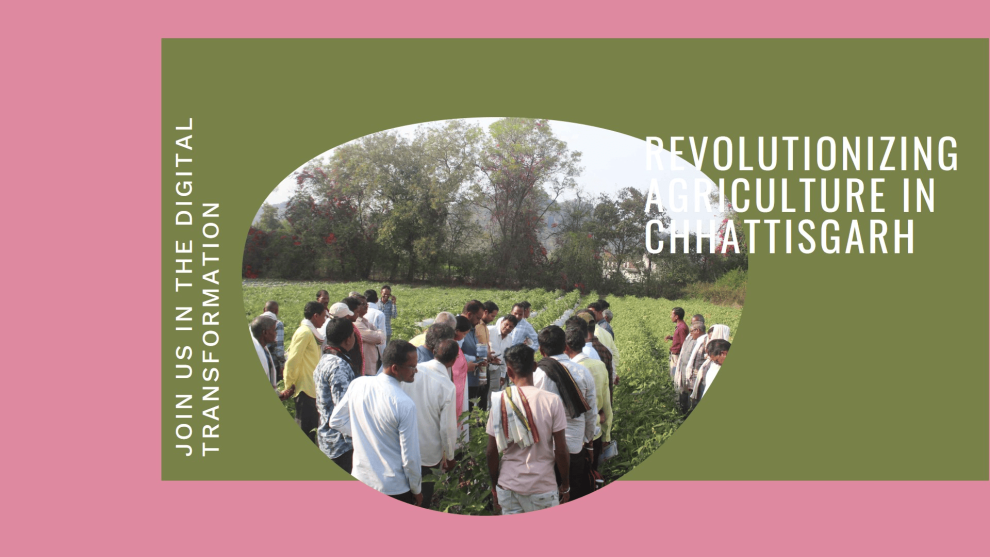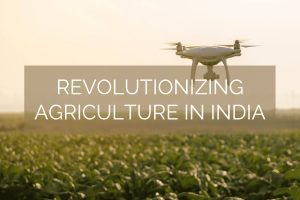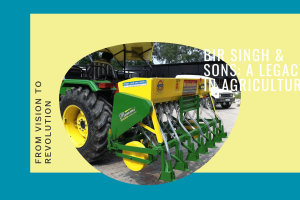The Digital Agri Village project is poised to revolutionize agricultural practices in Chhattisgarh, particularly in its tribal-dominated regions like Bastar and the Northern Hills. By integrating cutting-edge technologies with sustainable farming methods, this initiative seeks to empower tribal farmers, smallholder communities, and self-help groups (SHGs) with digital tools and knowledge. Here’s a comprehensive look at this groundbreaking project.
What is Digital Agri Village?
Digital Agri Village is a transformative initiative targeting the tribal-dominated areas of Chhattisgarh, such as Bastar and the Northern Hills. It aims to bring digital solutions closer to smallholder farmers, ensuring accessibility and fostering sustainable agricultural practices. The project’s goals include:
- Integrating smart technologies like IoT, AI/ML, and GIS.
- Improving farming outcomes through precision agriculture.
- Building resilient farming systems for climate adaptability.
- Empowering tribal communities through education and collaboration.
Target Areas in Chhattisgarh
Bastar Zone
Key districts: Bastar, Jagdalpur, Kondagaon, Kanker, Dantewada, Sukma.
Focus: Villages with significant tribal populations and smallholder farming communities.
Northern Hills Zone
Key districts: Koriya, Balrampur, Sarguja, Jashpur.
Focus: Tribal communities with challenges in accessing modern agricultural technologies.
Efforts will align with the objectives of aspirational districts, ensuring interventions address socio-economic gaps while meeting developmental goals.
Key Technologies Driving Digital Agri Village
Smart Farming Technologies
- IoT Devices: Monitor crop health, soil conditions, and weather patterns in real time.
- Drones and Sensors: Aid in precise data collection for field management.
- GPS Technology: Facilitates accurate mapping and field monitoring.
Precision Agriculture
- Real-time monitoring using advanced analytics.
- Automated machinery for efficient farm operations.
- Variable rate technology to optimize resource usage.
AI/ML-Based Pest Management
- AI-powered tools detect pest outbreaks early, reducing losses.
- Sustainable pest control using robotics and drones.
IoT-Enabled Smart Irrigation
- Sensors monitor soil moisture levels, optimizing water usage.
- Efficient irrigation ensures higher productivity and cost savings.
Digital Agriculture for Empowerment
Education for Farmers
- Online Courses: Accessible digital resources covering sustainable practices and market trends.
- Workshops: Training programs with AR/VR tools for experiential learning.
Socioeconomic Advancements
- Transparent supply chains using blockchain technology ensure fair pricing for produce.
- Access to larger markets increases incomes, enabling investment in education and healthcare.
Sustainability Initiatives
- Renewable Energy Systems: Promote clean energy solutions in farming.
- Eco-Friendly Pest Control: Reduce reliance on harmful chemicals.
- Organic Farming: Enhance soil health and minimize environmental impact.
Resilience to Climate Change
- Advanced irrigation systems and climate-resilient crops mitigate the risks of unpredictable weather.
- Real-time data assists in preparing for and managing climate-induced challenges.
Proposed Solutions for Digital Agri Village
- Geo-Tagged Farm ERP Systems: Digitizes farms with GIS technology for better farm management.
- Interactive Kiosks: Serve as hubs for collaboration and knowledge-sharing among farmers.
- AI/ML Algorithms: Optimize pest and disease management using robotics and drones.
- Blockchain-Based Supply Chain Solutions: Ensure traceability and fair pricing for agricultural produce.
- AR/VR Training Modules: Offer immersive learning experiences for SHGs and farmers.
Deliverables and Expected Outcomes
Technology-Based Solutions
- IoT-Enabled Sensors for real-time data collection.
- AI/ML Models for efficient pest control.
- Smart Irrigation Systems to save water and improve crop yields.
Knowledge Resources
- Compiling best practices in agriculture.
- Developing case studies for replication and scalability.
Community Empowerment
- Establishing farmer cooperatives for collective growth.
- Creating market linkages to ensure fair pricing.
Benefits for Tribal Communities
- Increased Productivity and Income
- Higher crop yields through optimized farming practices.
- Enhanced food security for tribal farmers.
- Improved Environmental Health
- Reduction in chemical pesticide usage promotes eco-friendly farming.
- Sustainable practices improve soil and water quality.
- Capacity Building
- Empowering farmers with modern techniques and market insights.
- Creating a resilient and adaptable agricultural workforce.
Success Metrics
- Increased Crop Yield: Targeting a 20–30% growth in productivity.
- Farmer Participation: Engaging over 10,000 tribal farmers in the first phase.
- Adoption Rates: Aiming for 70% adoption of precision farming technologies.
Visualizing Progress
Chart 1: Technologies in Use
| Technology | Function | Impact |
|---|---|---|
| IoT Devices | Real-time monitoring | Improved decision-making |
| AI/ML Algorithms | Pest and disease management | Reduced crop losses |
| Blockchain | Transparent supply chains | Fair pricing for farmers |
Chart 2: Socioeconomic Benefits
| Metric | Before Intervention | Post Intervention |
|---|---|---|
| Average Income | ₹50,000/year | ₹75,000/year |
| Crop Yield (per acre) | 2 tons | 3 tons |
Conclusion
The Digital Agri Village project represents a paradigm shift in how agriculture is practiced in tribal-dominated areas of Chhattisgarh. By combining technology, education, and sustainable methods, this initiative not only enhances productivity but also uplifts tribal communities. With its focus on inclusivity and innovation, Digital Agri Village stands as a beacon for advancing the digital transformation of agriculture in India.












Add Comment